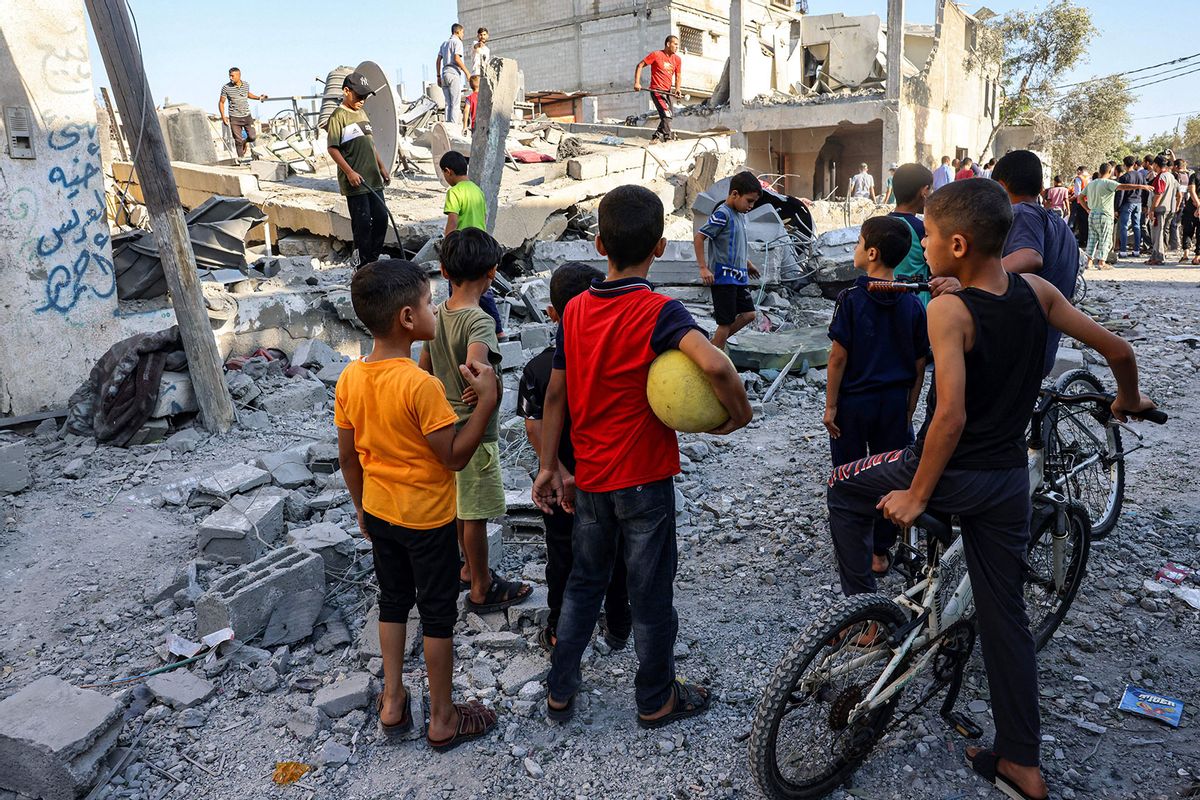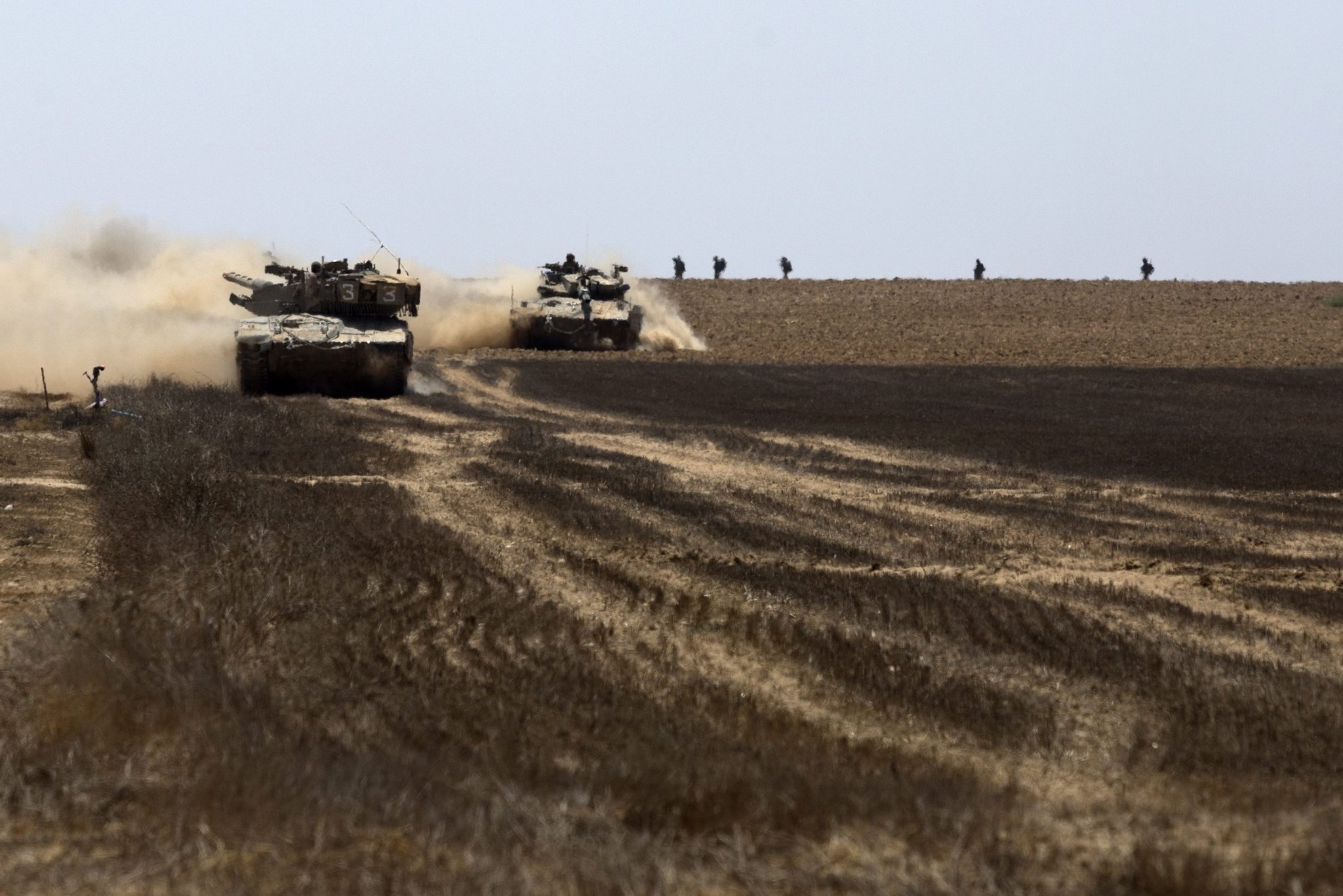Humanitarian Crisis In Gaza: Demand Grows For Israel To Lift Aid Restrictions

Table of Contents
The Dire Humanitarian Situation in Gaza
The humanitarian crisis in Gaza is a multifaceted catastrophe impacting nearly every aspect of life for its 2 million inhabitants. Years of conflict, blockade, and internal political instability have created a perfect storm of suffering. The consequences are stark and devastating.
- Food Insecurity: The UN estimates that over 50% of Gaza's population faces food insecurity, struggling to afford basic necessities. Many families rely on food aid to survive.
- Water Crisis: Access to clean and safe drinking water is severely limited. The majority of Gaza's water is contaminated, leading to widespread health problems. The UN Relief and Works Agency for Palestine Refugees in the Near East (UNRWA) reports that only 3% of Gaza's groundwater meets acceptable standards.
- Healthcare Shortages: The healthcare system is severely strained, with chronic shortages of essential medicines, equipment, and qualified medical personnel. The ongoing power outages further exacerbate these challenges, impacting critical medical services.
- Unemployment Statistics: Unemployment rates hover around 50%, with youth unemployment reaching even higher percentages. This widespread unemployment contributes significantly to poverty and desperation.
- Damaged Infrastructure: Years of conflict have left Gaza's infrastructure in ruins. Damage to roads, power plants, and sanitation systems continues to hamper recovery efforts.
These grim statistics paint a picture of a population struggling to survive, a population desperately in need of assistance. The scale of the humanitarian crisis in Gaza necessitates immediate and decisive action.
Israel's Restrictions on Aid Delivery
Israel's blockade on Gaza, now in its 16th year, significantly restricts the flow of humanitarian aid. These restrictions, implemented following the Hamas takeover in 2007, severely impact the ability of aid organizations to effectively respond to the crisis.
- Restrictions on Specific Goods: Israel controls the entry of essential goods, including construction materials, medical supplies, and food items. Restrictions are often arbitrary and inconsistently enforced, further hindering relief efforts.
- Limitations on the Flow of Personnel: The movement of humanitarian workers into and out of Gaza is often hampered by bureaucratic delays and restrictions, making it difficult for aid organizations to provide timely assistance.
- Delays in Delivery: Even approved goods frequently face significant delays at border crossings, exacerbating existing shortages.
- Checkpoints and Border Closures: The numerous checkpoints and frequent border closures restrict the movement of people and goods, compounding the difficulties of delivering aid effectively.
Specific examples of restricted items include vital medical equipment, materials necessary for infrastructure repair, and even agricultural inputs vital to food production. This control over access to essential goods effectively strangles Gaza’s economy and further intensifies its humanitarian plight.
The International Response and Growing Pressure on Israel
The international community has expressed growing concern over the deteriorating humanitarian situation in Gaza. Several international organizations and governments have called on Israel to lift its restrictions on aid delivery.
- UN Resolutions: Numerous UN resolutions have condemned the blockade and called for an end to the restrictions on the movement of people and goods.
- Statements from Major Countries: Several countries have publicly expressed their concern and urged Israel to ease its restrictions.
- Actions by NGOs: Numerous NGOs are actively working to provide humanitarian assistance in Gaza, despite the significant challenges.
- Public Campaigns and Protests: Growing public awareness of the crisis has led to increased protests and public campaigns demanding an end to the blockade.
Despite the international pressure, the situation remains dire. The lack of decisive action to address the humanitarian crisis in Gaza underscores the urgency for a more robust and effective international response.
Long-Term Consequences of the Humanitarian Crisis
The ongoing humanitarian crisis in Gaza has severe long-term consequences impacting the health, education, and overall development of its population.
- Increased Poverty Rates: The persistent economic hardship is leading to increased poverty rates and social inequality.
- Health Complications: Lack of access to clean water, adequate healthcare, and essential medicines contributes to significant health problems and increased mortality rates.
- Hindered Education: The damage to schools and the lack of resources have severely hampered education, hindering the future development of generations of Gazans.
- Stunted Economic Growth: The blockade and the ongoing conflict have devastated Gaza's economy, stunting its growth and limiting opportunities for its people.
- Societal Instability: The prolonged suffering and lack of hope contribute to societal instability, increasing the risk of further conflict and violence.
The long-term consequences of this humanitarian crisis are far-reaching and threaten the very fabric of Gazan society. Failure to address this crisis will lead to further instability and conflict in the region.
Conclusion
The humanitarian crisis in Gaza is a catastrophic emergency demanding immediate action. The dire situation, fueled by Israel's restrictive measures on aid delivery, necessitates an urgent intervention by the international community. The statistics are alarming, demonstrating a widespread lack of access to basic necessities, severely impacting the health, education, and well-being of Gaza's population. The long-term consequences of inaction are severe, jeopardizing the future of an entire generation. We urge readers to take action by signing petitions, contacting their representatives, and supporting humanitarian organizations working tirelessly to alleviate the suffering of the Gazan people. Let us join together to demand an end to the Gaza blockade and help ensure that humanitarian aid reaches those desperately in need. [Link to a relevant petition or organization]. Let's work together to end the humanitarian crisis in Gaza and support the people of Gaza.

Featured Posts
-
 The Lasting Effects Of Trumps China Tariffs Examining Increased Prices And Reduced Product Availability
Apr 29, 2025
The Lasting Effects Of Trumps China Tariffs Examining Increased Prices And Reduced Product Availability
Apr 29, 2025 -
 Mwaeyd Wamakn Fealyat Fn Abwzby Ybda 19 Nwfmbr
Apr 29, 2025
Mwaeyd Wamakn Fealyat Fn Abwzby Ybda 19 Nwfmbr
Apr 29, 2025 -
 Vancouver Festival Tragedy Car Rams Crowd Leaving Many Injured
Apr 29, 2025
Vancouver Festival Tragedy Car Rams Crowd Leaving Many Injured
Apr 29, 2025 -
 Southern Beirut Targeted In Israeli Airstrike Residents Urged To Evacuate
Apr 29, 2025
Southern Beirut Targeted In Israeli Airstrike Residents Urged To Evacuate
Apr 29, 2025 -
 Global Competition Heats Up The Race To Attract Us Researchers Post Funding Cuts
Apr 29, 2025
Global Competition Heats Up The Race To Attract Us Researchers Post Funding Cuts
Apr 29, 2025
Latest Posts
-
 Nine Fatalities Reported After Vehicle Strikes Crowd At Vancouvers Filipino Festival
Apr 29, 2025
Nine Fatalities Reported After Vehicle Strikes Crowd At Vancouvers Filipino Festival
Apr 29, 2025 -
 Car Plows Into Crowd At Vancouver Filipino Festival Leaving Nine Dead
Apr 29, 2025
Car Plows Into Crowd At Vancouver Filipino Festival Leaving Nine Dead
Apr 29, 2025 -
 Vancouver Filipino Festival Tragedy Nine Dead After Car Incident
Apr 29, 2025
Vancouver Filipino Festival Tragedy Nine Dead After Car Incident
Apr 29, 2025 -
 Ohio Doctors Murder Conviction Sons Emotional Journey Before Parole Decision
Apr 29, 2025
Ohio Doctors Murder Conviction Sons Emotional Journey Before Parole Decision
Apr 29, 2025 -
 Parole Hearing Looms For Ohio Doctor Convicted Of Killing Wife 36 Years Ago
Apr 29, 2025
Parole Hearing Looms For Ohio Doctor Convicted Of Killing Wife 36 Years Ago
Apr 29, 2025
